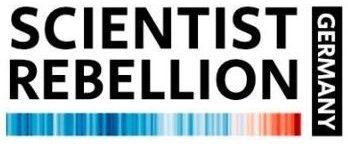“Whistleblowing presents a critical perspective on both how to challenge power dynamics and how to expose social injustices and wrongdoing.”
“Whistleblowing is presented as an act of “disruption”, which is able to provoke the unexpected within closed systems.”
(‘Whistleblowing for Change’ by Tatiana Bazzichelli)
Science Warnings – Publicising Misconduct
If you experience or witness that scientific data of public interest is being misused, watered down, taken out of context or that there is unlawful practice or professional misconduct which is aimed at obfuscating scientific evidence, you might want to make such abuses public.
This can be information showing, for example, that:
- politicians and/or organisations push their own interests without heeding recommendations or even warnings from the scientific community
- publicly funded science is being misused or ignored
- scientific data has been altered, watered down, glossed over or bought
- editors/media houses decide on communicating incomplete scientific findings or non at all although they’d be of relevance for the public
- science departments are coerced under pressure to present data and findings in such a way that they serve the respective individual or economic interest and not the scientific evidence.
However, first, you should ask yourself whether what you’d like to report is of public interest or merely a violation of good scientific practice (GSP) and scientific integrity. Hence, whether the information is important for within the scientific community vs. for the public. GSP violations can be solved by the Office of the Ombudsman for Science, which is a committee appointed by the German Research Foundation (DFG).
For information, that is of public interest, you can use a newly set up secure mailbox, which supports your effort to ensure that scientific evidence of public interest finds its way to the public.
In that case, you should not act intuitively or quickly, but rather inform yourself about possible risks and consequences, which can vary greatly depending on who you are, who you work for and what you’d like to report.
Particularly valuable is the advice offered by the Whistleblower Netzwerk e.V., which has profound expertise in this area. You can also contact the Electronic Frontier Foundation, a non-profit organization dedicated to defending civil liberties in the digital world.
Here are some more helpful links and tools
Personalized recommendations and advice from experts on account security, securing devices, be it smartphones or home computers and tracking: CR Security Planner
Staying anonymous. This applies to both your digital and analog environments. Encrypt your communications (see below) and use a computer that cannot be linked to you personally. Make sure to use screen shot photos and not the original documents.
Some basic and easy to use tools to increase your safety:
The best option for anonymous browsing TOR Browser
A secure way to transfer larger files OnionShare
An anonymous, portable operating system Tails
A secure communication platform for your smartphone and computer Signal
A password manager with many functions KeePass
Software to encrypt, and thus make unreadable for third parties, files VeraCrypt
You can also find more information here:
Details about the Whistleblower Protection Act can be found here:
- https://www.bundestag.de/dokumente/textarchiv/2022/kw50-de-hinweisgeber-926806
- press release of the Whistleblower Network regarding the implementation of the “Hinweisgeberschutzgesetzes” (in German)
Worth reading
Book: ‘Whistleblowing for Change’ by Tatiana Bazzichelli, available as a free PDF.
